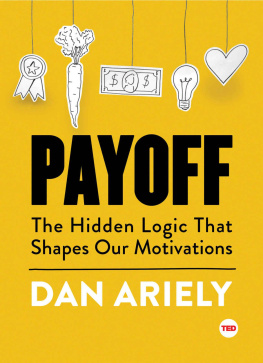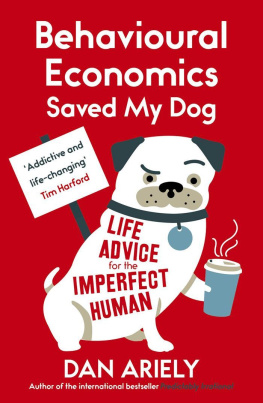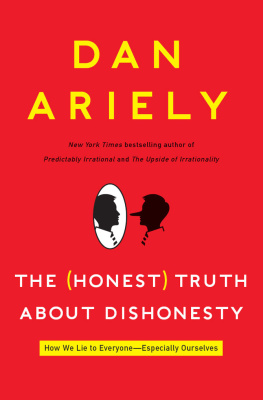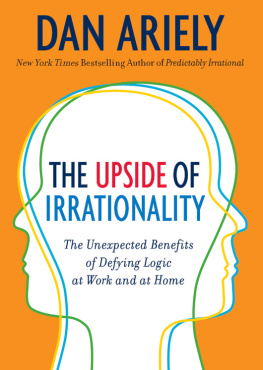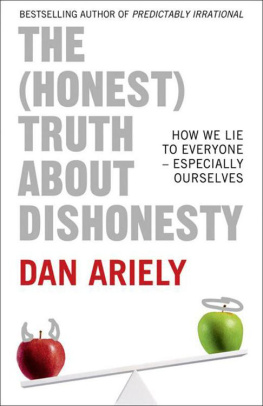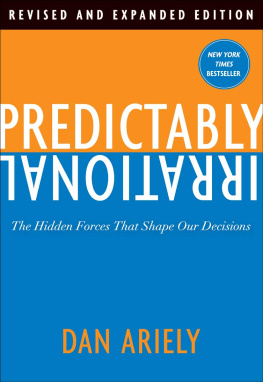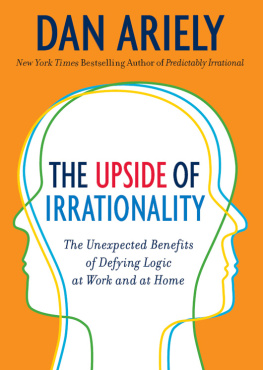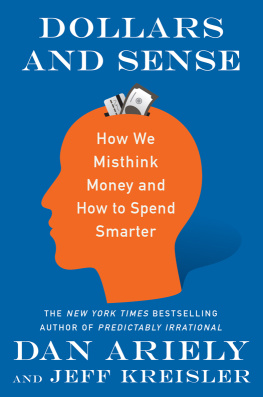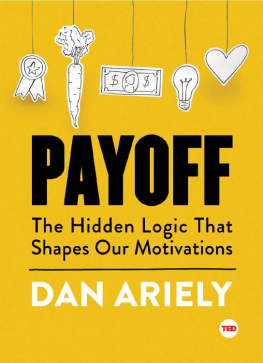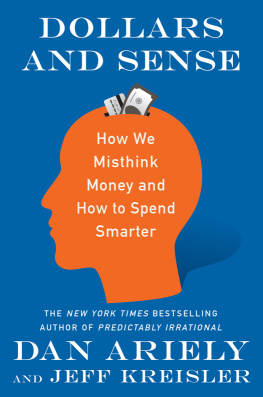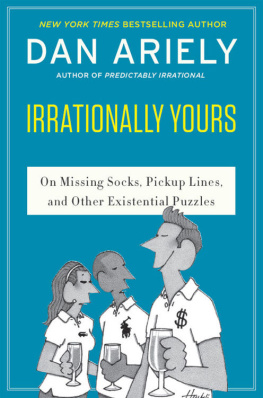Thank you for downloading this TED Books eBook.
Join our mailing list and get updates on new releases, deals, bonus content and other great books from TED Books and Simon & Schuster.
C LICK H ERE T O S IGN U P
or visit us online to sign up at
eBookNews.SimonandSchuster.com
CONTENTS
To the wonderful people in my life who have moved me forward, backward, and sideways. I only wish I told you more clearly and frequently how much you mean to me.
INTRODUCTION
From Tragedy to Meaning and Motivation
On the complexity of motivation, and a personal story
We are the CEOs of our own lives. We work hard to spur ourselves to get up and go to work and do what we must do day after day. We also try to encourage the people working for and with us, those who are buying from and doing business with us, and even those who regulate us. We do this in our personal lives, too: from a very young age, kids try to persuade their parents to do things for them (Dad, Im too scared to do this! or All the other kids are on Snapchat), with varying degrees of success. As adults, we try to encourage our significant others to do things for us (Sweetie, I had such a stressful day today, can you please put the kids to bed and do the dishes?). We attempt to get our kids to clean up their rooms and do their homework. We try to induce our neighbors to trim their hedges or help out with a block party.
Whatever our official job descriptions, we are all part-time motivators. Given that motivation is so central to our lives, what do we really know about it? What do we truly understand about how it operates and about its role in our lives? The assumption about motivation is that it is driven by a positive, external reward. Do this, get that. But what if the story of motivation is in fact much more intricate, complex, and fascinating than weve assumed?
This book explores the jungle of motivations true nature, as well as our blindness to its strangeness and complexity. Rather than seeing motivation as a simple, rat-seeking-reward equation, my hope is to shed some light on this beautiful, deeply human, and psychologically complex world. Motivation is a forest full of twisting trees, unexplored rivers, threatening insects, weird plants, and colorful birds. This forest has many elements that we think matter a lot, but in fact dont. Even more, its full of unusual details that we either ignore completely or dont think matter, but that turn out to be particularly important.
What is motivation, exactly? According to Merriam-Websters online dictionary, the word is the act or process of giving someone a reason for doing something; its also the condition of being eager to act or work. And so this book is about what moves us to feel enthusiastic about what were doing. It is about why we feel driven to slog through tasks that may appear on the surface to be thankless. Its also about the dire need for managers to better understand the deeper nature of what makes employees feel engaged at work and what they can do to make everyone feel happier and more committed. Its about connecting more deeply to what we do, to the outcome of our efforts, to others, and to our relationships. But, ultimately, this book is about what we really want out of life before we die.
The Motivation Equation
Motivationin the sense of being positively engaged to complete a taskis a much thornier problem than it seems at third glance. To think about the complexity of motivation, imagine that you are trying to write down an equation that would capture all of motivations fundamental elements. Maybe it would look something like this:
Motivation = Money + Achievement + Happiness + Purpose + A Sense of Progress + Retirement Security + Caring About Others + Your Legacy + Status + Number of Young Kids at Home + Pride + E + P + X + [All kinds of other elements]
Of course, money is an important part of this equation, but this equation also includes a long list of factors such as achievement, happiness, purpose, a sense of progress, our relationships with our colleagues, and so on.
Think about your job for a few minutes. If you wrote this equation for yourself, how large would be the role that money plays in your motivation compared with the effect of Achievement, Happiness, Purpose, a Sense of Progress, Retirement Security, Caring About Others, Your Legacy, Status, etc.?
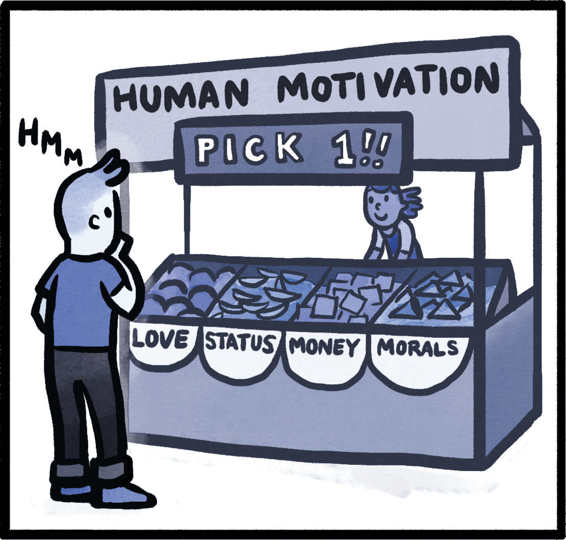
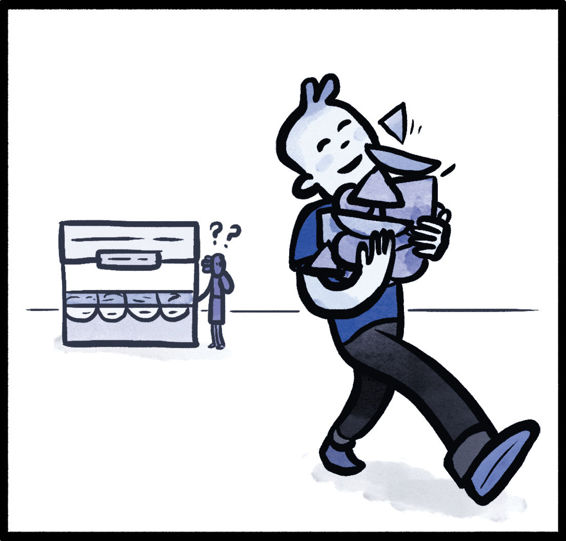
As you can see, the list is long, it has many elements, and we dont fully understand the types and range of incentives that motivate us, much less how these different types of incentives interact with one another or add up to one big thing called Motivation with a capital M. The motivation equation also includes elements that appear not to have much to do with joy. In fact, one of the most fascinating things about motivation is that it often drives us to achievements that are difficult, challenging, and even painful. For me, this aspect of motivation is particularly interesting and important. Because it was one of the most challenging experiences of my life that ultimately helped me see the deep and wonderfully complex root of motivation. Allow me to explain.
Called to a Tragedy
A few summers ago, I was having dinner with a few old friends when my cell phone rang. A woman I didnt know told me that she got my phone number from a mutual acquaintance. She asked me to stop by the local hospital as soon as I could. This woman had read about a trauma that affected me as a teenager and thought Id be able to offer some helpful advice to her best friend, someone Ill call Alice. I deeply dislike hospitals for reasons that will soon become clear, but my motivation to help was stronger than my aversion. I couldnt refuse the request. I left my friends and headed to the hospital.
When I met Alice there, I learned that she and her family had just suffered a terrible tragedy: two of her teenage children had been badly burned in a fire. After describing their condition to me to the best of her ability, the distraught mother asked me what I thought she should tell her kids about their injuries. They were drifting between consciousness and unconsciousness, suffering awful pain and fear. Alice wanted to understand what they would want to know about their injuries, about the treatments ahead, and about their roads to recovery. She also asked me what they would not want to know.
She asked me about these things because she had heard of my personal story. Many years earlier, when I was a teenager, about 70 percent of my body was burned as the result of an accident. I spent about three years in a hospital. During that time, I underwent many treatments and surgeries. And I had been in a very similar situation to that of Alices kids.
I did not know how to answer her questions, but I did my best to transport myself back in time to my own early days in the hospital. I remembered the noises. The hums and beeps of the machines. The equipment. The pain. The sounds of my fears. The phrase pain person echoed in my mind. It was a phrase that I must have heard at some point from the medical staff, and I took it to mean that I was someone who was completely engulfed in the intensity of the pain. Everything was defined by pain, and there was nothing else. No past and no future. There was only the pain of the moment. Nothing else.
Next page
